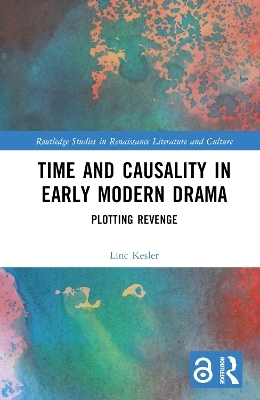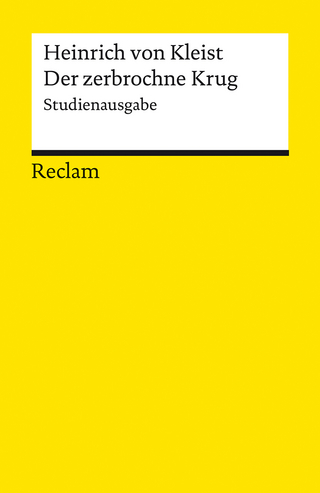
Time and Causality in Early Modern Drama
Routledge (Verlag)
978-1-032-72193-4 (ISBN)
The opening of the first commercial theatre in London in 1579 initiated a pattern of development that radically reshaped representation. The competition among theatres required the constant production of new works, creating an interplay between the innovations of producers and the rapidly changing perceptions of audiences. The result was a process of incremental change that redefined perceptions of time, action, and identity. Aristotle in the Poetics contrasted a similar set of formal developments to the earlier system of the epics, which, like many predecessors of early modern drama, had emerged from largely oral traditions. Located in the context of contemporary relations between the academy and Indigenous communities, Time and Causality in Early Modern Drama: Plotting Revenge traces these developments through changes in the revenge tragedy form and questions our abilities, habituated to literacy, to fully understand or appreciate the complexity and operations of oral systems.
The Open Access version of this book, available at http://www.taylorfrancis.com, has been made available under a Creative Commons [Attribution-Non Commercial-No Derivatives (CC-BY-NC-ND)] 4.0 license.
Linc Kesler has a B.A. from Yale University and a Ph.D. from The University of Toronto, both in English literature. He is now an emeritus professor at the University of British Columbia. In his early career he taught early modern English literature and literary theory at Oregon State University, while also leading the establishment of the state’s first Ethnic Studies department and other services for American Indian and other under-represented students and working on oral history and other projects with Oregon tribal organizations. In 2003 he became the first director of First Nations and Indigenous Studies at UBC, developing curriculum centred on research partnerships with Indigenous communities and organizations and advanced uses of digital technologies. He subsequently became the director of the First Nations House of Learning and senior advisor to the president on Aboriginal Affairs, leading the development and implementation of the UBC Aboriginal Strategic Plan and the establishment of units such as the Indian Residential School History and Dialogue Centre, the Centre for Excellence in Indigenous Health, and the Indigenous Research Support Initiative. Since leaving teaching and administration, he has returned to research on early modern English drama. His Indigenous ancestry is Oglala Lakota from the Pine Ridge Indian reservation in South Dakota.
Acknowledgements
Introduction
Part I, A Theory of Tragedy
1 Nietzsche, Aristotle, and a Theory of Tragedy
Part II, Precursors To Tragedy
2 Epics and Narratives of Inclusion
3 “The Syllables of Time”: Drama and Time in the Middle Ages
Part III, Tragedy, Time, and Revenge
4 Marlowe’s “Tragic Glass” and the Decline of Analogy
5 The Spanish Tragedy and Revenge
6 Titus Andronicus
7 Hamlet
8 Othello
9 Decadent Tragedy
Part IV, Reflections on Process
10 Epilogue and Conclusions
Bibliography
Index
| Erscheinungsdatum | 10.07.2024 |
|---|---|
| Reihe/Serie | Routledge Studies in Renaissance Literature and Culture |
| Zusatzinfo | 2 Halftones, black and white; 2 Illustrations, black and white |
| Verlagsort | London |
| Sprache | englisch |
| Maße | 152 x 229 mm |
| Gewicht | 453 g |
| Themenwelt | Literatur ► Lyrik / Dramatik ► Dramatik / Theater |
| Geisteswissenschaften ► Sprach- / Literaturwissenschaft ► Anglistik / Amerikanistik | |
| Geisteswissenschaften ► Sprach- / Literaturwissenschaft ► Literaturwissenschaft | |
| ISBN-10 | 1-032-72193-6 / 1032721936 |
| ISBN-13 | 978-1-032-72193-4 / 9781032721934 |
| Zustand | Neuware |
| Haben Sie eine Frage zum Produkt? |
aus dem Bereich


